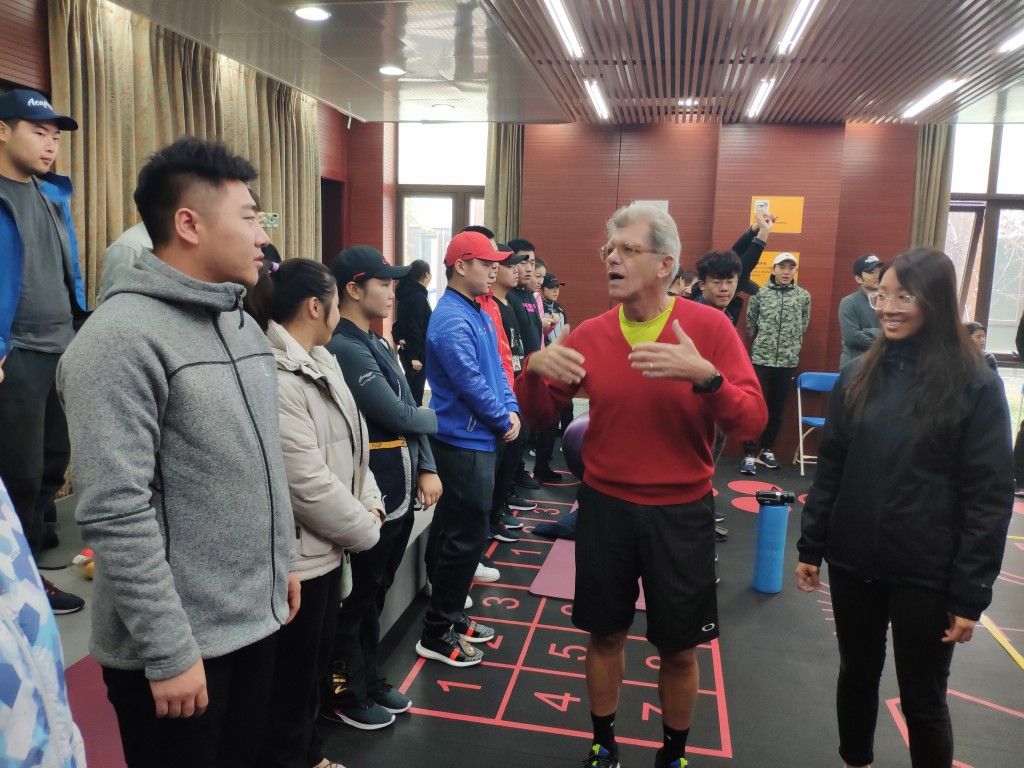It would have been a great time, probably I would have gone to Tokyo, to the Olympics with the Chinese shooting team, after a year working with them since the 2019 World Championships. I would also have followed some Italian athletes. Like the athletes I was preparing for this unique event, the Olympics, which I have always participated in with federations or individual athletes since Atlanta 1996.

I still keep the T-shirts of each edition and the memories of the most important moments are very clear and vivid in my memory. For example, when the president of shooting told me: “Doctor, are you always so calm?” I said, “Mr. President, if you see me anxious, you’ll start to worry.” I had experiences that I would never have imagined, athletes men and women, who won a medal in the final, who two hours earlier were in panic, nausea, pure terror of not knowing what to do to win. I had to talk to them, certainly not giving them a pat on the back or telling them not to worry that they were strong.
Almost always the coaches let me talk with them saying: “Alberto, you take care of it”. I lived those moments listening phrases like: “I’m so terrified that I seem calm”, “I’m not going out of here, “I’m going home”, “Tell me what to do”, “If I try to imagine what I’m going to do, I think all wrong”, “I’ve been through the final a thousand times and now I’m just nervous”.
The first time, in Atlanta, I wasn’t ready to face a situation like this. I had thought about what unexpected events might happen but I hadn’t anticipated the panic in a finalist’s mind less than one hour from the start. Luciano Giovannetti, the team’s head coach, winner in the past of two gold medals in Moscow and Los Angeles, told me: “You’re the psychologist, you talk to him”. I went to where the shooter was eating something and he told me he didn’t want to leave the tent for the final, total panic. At that point he was really close to the start of the competition and I began to talk reminding him of all the sacrifices he had made in those years to arrive prepared for this moment, the decisive one. I spoke to him for a few minutes during which his mood changed, he found the vitality necessary for an Olympic final. When he started the final, he missed one of the first clay pigeons and he turned around looking back. Then he told us that he had said these words: “If you quit now, you’re an asshole, just concentrate!”. It worked, he won the silver medal.
From this experience I learned that it’s really true that the winners are the ones who go through this emotional hell and control it. Second lesson, the staff is also decisive for the winners, otherwise they run the risk of succumbing, just when they have to face the decisive moments of a race.
The Olympics are one of the three most important sporting events, along with the Football World Cup and the Tour de France. In Italy our top athletes, called “Probable Olympics” are about 800, of these about 300 participate in the Olympics, less than half are among the top 10 in the world of their sport and usually, Italy wins 25 medals, putting us among the 10 most winning nations. In essence, there are about twenty top athletes who have won medals at the Summer Olympic Games on a starting base of about 800. This data highlights the extreme difficulty of achieving such a success. It allows us to understand the immense joy of those who win a medal but also the immense disappointment of those who, despite their skills, have not succeeded. It is not rhetorical to say that the Olympics have an immense value for each of them and that more and better should be done to develop and safeguard the talent, the health and motivation of these people we call athletes.






